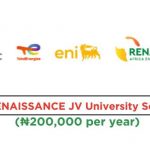Efforts are intensifying to revitalize Nigeria’s palm oil industry and reclaim its lost market share, as stakeholders set their sights on unlocking the nation’s estimated $10 billion palm oil export potential. Despite once being a global leader, Nigeria now exports only $1.34 million in palm oil, ranking 78th globally, while importing $372 million annually.
In a report titled “Reclaiming Lost Glory: Nigeria’s Palm Oil Renaissance”, launched on October 30 in Lagos, research firm Vestance highlighted the untapped opportunities in Nigeria’s oil palm sector. Razaq Fatai, Vestance’s Research Lead, noted, “By capitalizing and rejuvenating these plantations, Nigeria could generate over $10 billion in export revenue alone.” He traced the sector’s decline to the Civil War era, urging that “It is now time to begin to reverse the decline and put the sector back on track.”
The report launch featured a panel session, moderated by Vestance’s Chinwe Abuwa, where experts discussed strategies for revitalizing the sector. Dr. Adewale Onadeko, Managing Director of SWAgCo (O’dua Investment Group), emphasized the need for Nigeria to adopt an agro-industrial cluster strategy. “A cluster approach integrates essential infrastructure like seeds, fertilisers, extension services, processing, and storage facilities,” Onadeko said, explaining that this setup can significantly increase productivity by incorporating smallholder farmers within a 25 km radius.
Dr. Bayo Ogunniyi, Country Programme Analyst at the International Fund for Agricultural Development, addressed the challenges faced by smallholder farmers, particularly inadequate access to finance and the use of outdated, low-yield seeds. Ogunniyi stressed the need for Nigeria to distribute high-quality seeds to boost production. He also highlighted that the oil extraction rates of smallholder processors are often below 15%, much lower than the 25% achieved by modern mills, noting that improving extraction rates is vital to the sector’s success.
BulkDirect CEO Ramses Najem emphasized the importance of situating processing facilities closer to farms to ease transport burdens. He argued, “We must support small-scale farmers by providing them with financial resources, processing facilities, and extension services. This support is essential if we want to transform Nigeria’s dependence on imported palm oil into self-sufficiency and export capability.”
Speakers called for a comprehensive strategy involving high-yield seeds, modern processing facilities to enhance oil extraction rates, and well-structured transportation networks to optimize the supply chain.
Rildwan Bello, Programme Manager at Vestance, stated, “We at Vestance are committed to helping unlock the immense potential in African agriculture. Through studies like the Palm Oil Report, we provide valuable insights and strategic guidance aimed at transforming the agricultural and food sectors.” Bello urged stakeholders, including government bodies, private investors, smallholder farmers, and development partners, to collaborate in restoring the sector to its former prominence.










